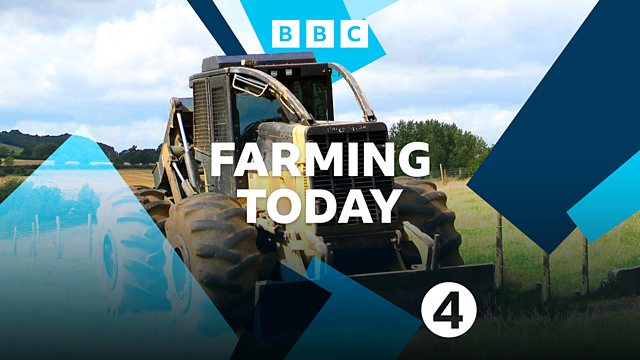
12/12/23 Bluetongue; Treetop nematodes; Rare breed sheep
Spraying treetops with microscopic worms, or nematodes, from drones. Another case of bluetongue disease - on a farm in Norfolk. Rare sea-weed eating sheep - North Ronaldsays.
Next year could see drones being used for the first time to drop microscopic worms on trees, to protect them from harmful insects.聽The worms, or nematodes, are natural predators of damaging insects and the forest industry is developing ways of controlling pests as pesticides it currently relies on are phased out.
Another outbreak of Bluetongue has been recorded in Norfolk making a total of 11 cases in England. Stock on six different premises, in Kent and Norfolk have been affected. There are restrictions on moving animals in the protection zones and farmers say its difficult to find abattoirs to process their animals within those zones. We speak to a beef farmer who remembers a big outbreak which affected farms across Europe in 2007.
All week we're looking at rare breeds. The North Ronaldsay are one of the UK鈥檚 oldest and rarest breeds of sheep. They're shaggy and small and can often be found grazing on seaweed along the coast of the northernmost of the Orkney Islands, which they鈥檙e named after. But more recently farmers on the UK mainland have taken to keeping the breed which is listed as a priority by the Rare Breeds Survival Trust.
Presenter = Anna Hill
Producer =Rebecca Rooney
Last on
Broadcast
- Tue 12 Dec 2023 05:45大象传媒 Radio 4
Podcast
-
![]()
Farming Today
The latest news about food, farming and the countryside

